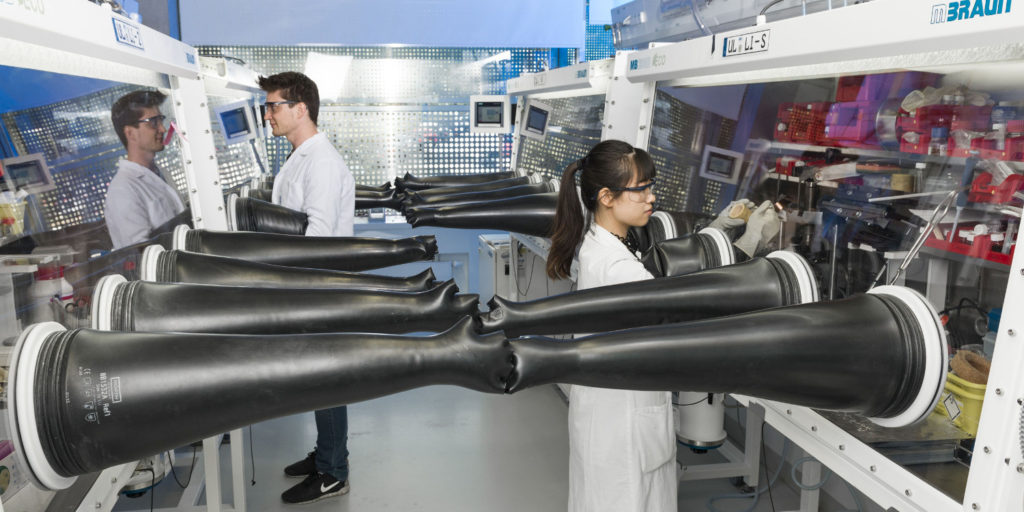From pv magazine Germany
The search for lithium-ion battery alternatives has been ongoing for some time. A new EU research project has now started, which aims to support a breakthrough in magnesium batteries.
“Magnesium is a promising material, and one of the most important candidates in our post-lithium strategy,” says Maximilian Fichtner.
He is deputy director of Germany-based Helmholtz Institute Ulm (HIU), a research body dedicated to the research and development of electrochemical battery concepts, founded by the Karlsruher Institut für Technologie (KIT) in cooperation with the University of Ulm, and partners Deutsches Institut für Luft- und Raumfahrt (DLR) and Zentrum für Sonnenenergie- und Wasserstoff-Forschung (ZSW).
In total, the research project will be supported by more than €7.6 million through the EU’s Horizon program. KIT is one of 10 scientific institutions involved in the project, and will receive €870,000. DLR will also receive over €750,000. Overall project coordination lies with the Spanish Fundación Cidetec. Other partners come from Israel, France, Denmark and the United Kingdom.
“E-Magic” is the abbreviation for the European Magnesium Interactive Battery Community. The participating institutes say they have united all of the necessary steps for the development of magnesium batteries, from basic research to processes for cell production.
“The particular challenge with magnesium batteries is to achieve a long lifetime,” says HIU project coordinator Zhirong Zhao-Karger. At the same time, however, the scientists want to use the positive properties of the new anode material. For example, magnesium anodes do not form dendrites, i.e. electrochemical deposits that could cause malfunctions or short-circuits, like in lithium-ion batteries.
“That's why we can use magnesium in metallic form and use the very high storage capacity of the metal directly. This increases the performance of the battery,” continues Zhao-Karger.
Another advantage of using magnesium technology in battery production would be a reduction in use of lithium. Magnesium is about 3,000 times more abundant on earth than lithium, and it is also easier to recycle, according to the HIU.
Thus, magnesium batteries could also be cheaper than their lithium-ion counterparts. At the same time, the new technology would be an opportunity to establish a competitive battery manufacturing landscape in Europe, which could reduce the dominance of Asian battery cell manufacturers.
This content is protected by copyright and may not be reused. If you want to cooperate with us and would like to reuse some of our content, please contact: editors@pv-magazine.com.




Nice to learn about new R& D in battery
Kindly keep me updated about the happenings in PV industry